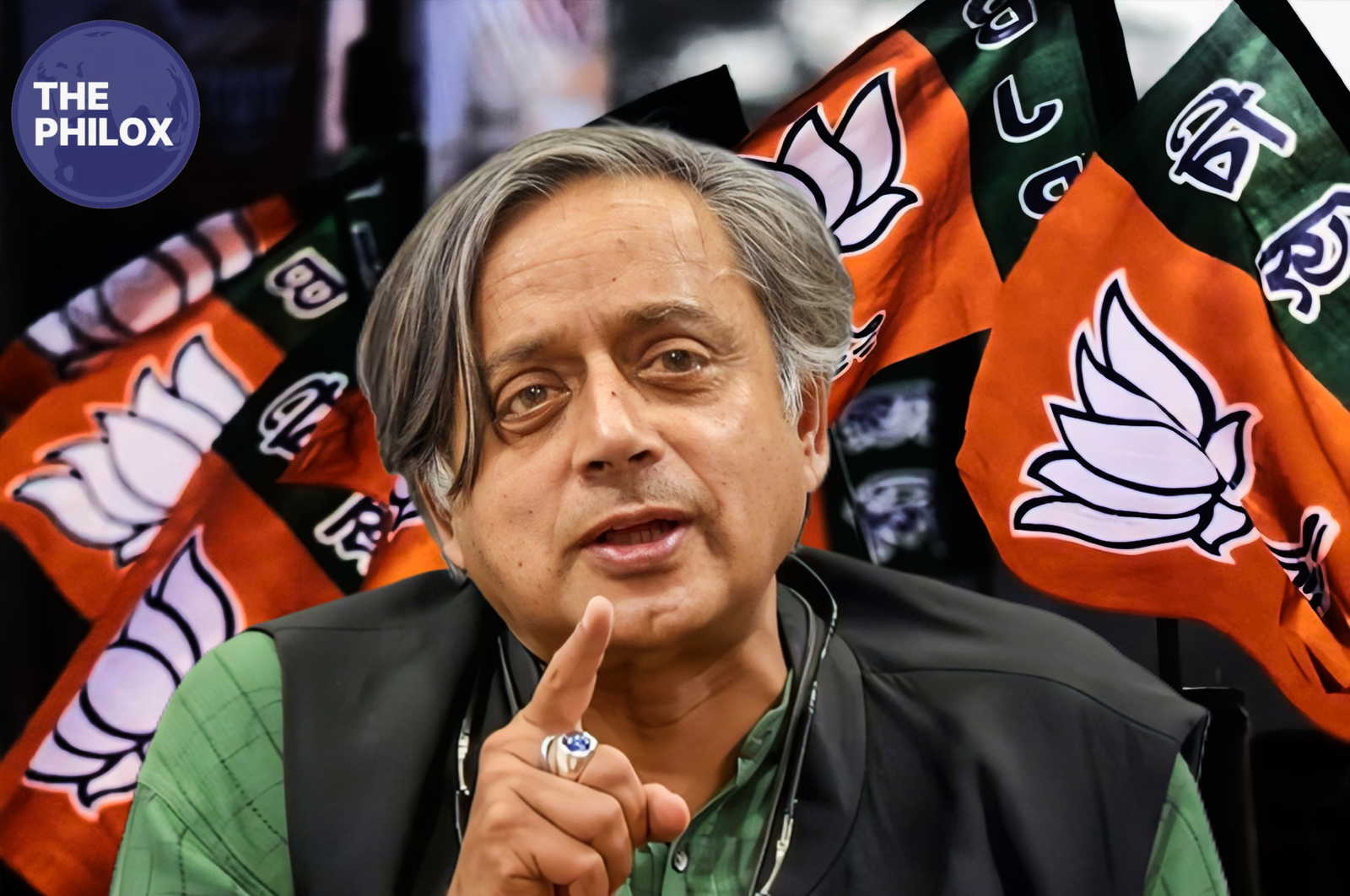
Speculation in Indian politics is common and in the energy of the ever-changing Indian political landscape, change somehow comes in front of speculation. The new one in this cycle is Congress leader and MP for Thiruvananthapuram Shashi Tharoor. Reputed to be eloquent, intellectually weighty, and occasionally unpredictable, Tharoor has got himself into trouble again – this time, when he apparently tries to be on the same side of the argument as people and forces identified with the Bharatiya Janata Party (BJP). He has not yet held a formal declaration but he has gone to the extent of praising BJP leaders and criticizing Congress stories in code that has left political pundits with the question, is Shashi Tharoor even thinking of joining the BJP?
A String of Praises: Signals or Strategy?
This speculation sprouted long before the latest flare-up. On other occasions, Tharoor has spoken in praise of BJP leaders and elder participants in the Rashtriya Swayamsevak Sangh (RSS). He had in the past called BJP veteran L.K. Advani a man of principle and applauded Atal Bihari Vajpayee as a statesman and leader of inclusive politics. More to the point, Tharroor made some positive remarks towards Tejasvi Surya, the young BJP MP in Bangalore South, describing him as a smart, passionate, and very talented politician, which is the vocabulary not typical of a Congress leader in relation to a rising star of the opposing camp.
In another most talked about instance, in his comments to the highly controversial BBC documentary on Prime Minister Narendra Modi and the 2002 Gujarat riots, Tharoor told the Indian Muslim community that they needed to get over it (the year 2002) and to focus on the future. Such a move was perceived by many in the Congress as a shift in their position of criticizing the past of Modi.
Congress Attacks, Tharoor Responds
When the buzz of his ideological drift became louder, the leaders of Congress started to speak out about the frustration they felt. Recently, when Tharoor was quizzed on the disquiet within the party and the prospect of him being gunned down due to failure to stick to the official line, he kept his calm and crossed swords. I am doing this to represent the country, I will do better things. When I get back to you, I will take all this up, and it shall be in the nature of introspection but not of retreat, he said.
Other people have considered his reply as a claim of independence. It is apparent that Tharoor has lost interest in being bound to strict party lines, which happen to run counter to his own morally correct perceptions and interpretation of the national mood.
The Rift over the “India Lost, Pakistan Won” Narrative
This conflict between Tharoor and his party was most evident after the 2024 Lok Sabha elections results were in. The Congress was in an attempt to put a face-save, trying to pass the result off as a moral loss to Modi and the BJP, another way of saying that India did not want authoritarianism or communalism, but Tharoor didn t jump on the bandwagon.
The more conservative elements of Congress had started propagating the idea that the success of BJP was a loss for India and a symbolic victory for Pakistan. Tharoor did not go out of his way to frame it like this however. This stand against what some would call a sore loser script has also been said to have hurt his connection with the party’s high command.
His ideas about such rhetoric as a way of alienating the moderate electorate and meeting the greater national interest are false. This has earned him the admiration of centrist and independent-minded people but has alienated him from people within his party who expect him to deliver a similar message.
A Pattern of Independent Thinking
Tharoor has not taken a strange path the first time. He declared in a famous quote in 2018, that Hinduism is not Hindutva and this made both ends of the ideological spectrum angry. Where the BJP labelled him as a cultural usurper, certain leaders in the Congress believed that he was conceding excessively to the opposition. He has always spoken in support of a liberal nationalism that has insisted on checking of India’s pluralistic traditions while simultaneously being flanked by the significance of the majority mood in the democratic process.
When Prime Minister Modi launched his Swachh Bharat Abhiyan, Tharoor even supported him on it, an action that earned him criticism in his party. However, Tharoor defended himself by stating that just because a political opponent has an idea, it does not automatically mean that the idea is wrong.
It has been this tendency to support or oppose issues that has set the pattern of Tharoor politics but it is a pattern that definitely does not seem to fit the Congress requirement of speaking in the same voice and in same posture.
RSS Praise: A Political Red Line?
Tharoor made the most controversial recent remark admitting his ambivalence in the support of RSS. Although he did not clearly support the ideology of the organization, he made it clear, the organization did play a role in nation-building and social services in some sections of India This was questionable in the eyes of the Congress that has traditionally regarded the RSS as an ideological opponent.
To the Congress, any compromise with RSS would be a red line. The organization is considered as the ideological spine of the BJP and the influence of the Sangh Parivar over governance is one of the most important issues that the party tries to refute. It is estimated that Tharoor has curbed at this point and this report along with its gossip about his political leanings in the future has certainly increased.
Is it Political Realignment or Strategic Positioning?
However, Tharoor has not opened his lips about whether he will become a BJP member or not. According to his supporters he is still a Congressman at heart yet he holds a wide scope of political involvement which incorporates healthy interaction with political enemies as well.
Position does however have critics within the Congress who hold that this weakens an ideological clarity within the party. In a phase where polarisation is the order of the day and party lines the key to survival, Tharoor has started looking like a dissenter rather than a debater.
Other political commentators point out that Tharoor, in all likelihood, could be imagining a big role on the national scene potentially even as part of a centrist alliance or a new political outfit in the event the Congress does not rebrand itself. What with its continued efforts at politically-correct signings, whereby it would dearly love to have an articulate, globally accepted face or two, the BJP may well find to make use of such an unquestionably talented representative as Tharoor, particularly in the southern states where the party still finds itself unable to gain much traction.
What Lies Ahead for Tharoor?
The role of Tharoor in Indian politics seems to be getting more uncertain yet very significant. Now, when he decides to remain with the Congress trying to bring about a change internally or when he joins the BJP or even cuts an independent course, his next step is going to be keenly observed in the political arena.
The kind of politics he represents, eloquent, well-educated, internationalist, is one that has a market the Congress and the BJP do not entirely meet now. Should he take the step of jumping ship it will not only be the exercise of his personal judgment, it may well cast new ideological lines on Indian democracy.
A Defending Moment
Shashi Tharoor is at a crossroads. New statements and decisions indicate an uneasiness with the dogma of partisanness and the leaning towards pragmatism rather than populism. And wherever this travel takes him: whether he ends up in the BJP, continues his stay in Congress, or an altogether new beginning, one thing is bound to happen: Indian politics is experiencing a rare episode of ideological soul-searching.








